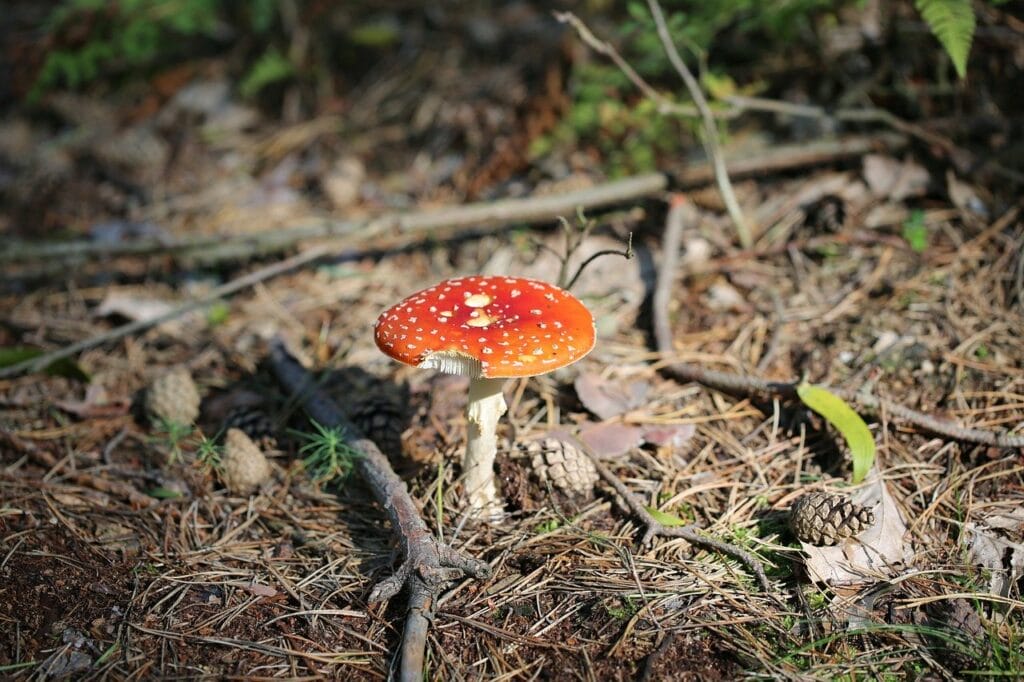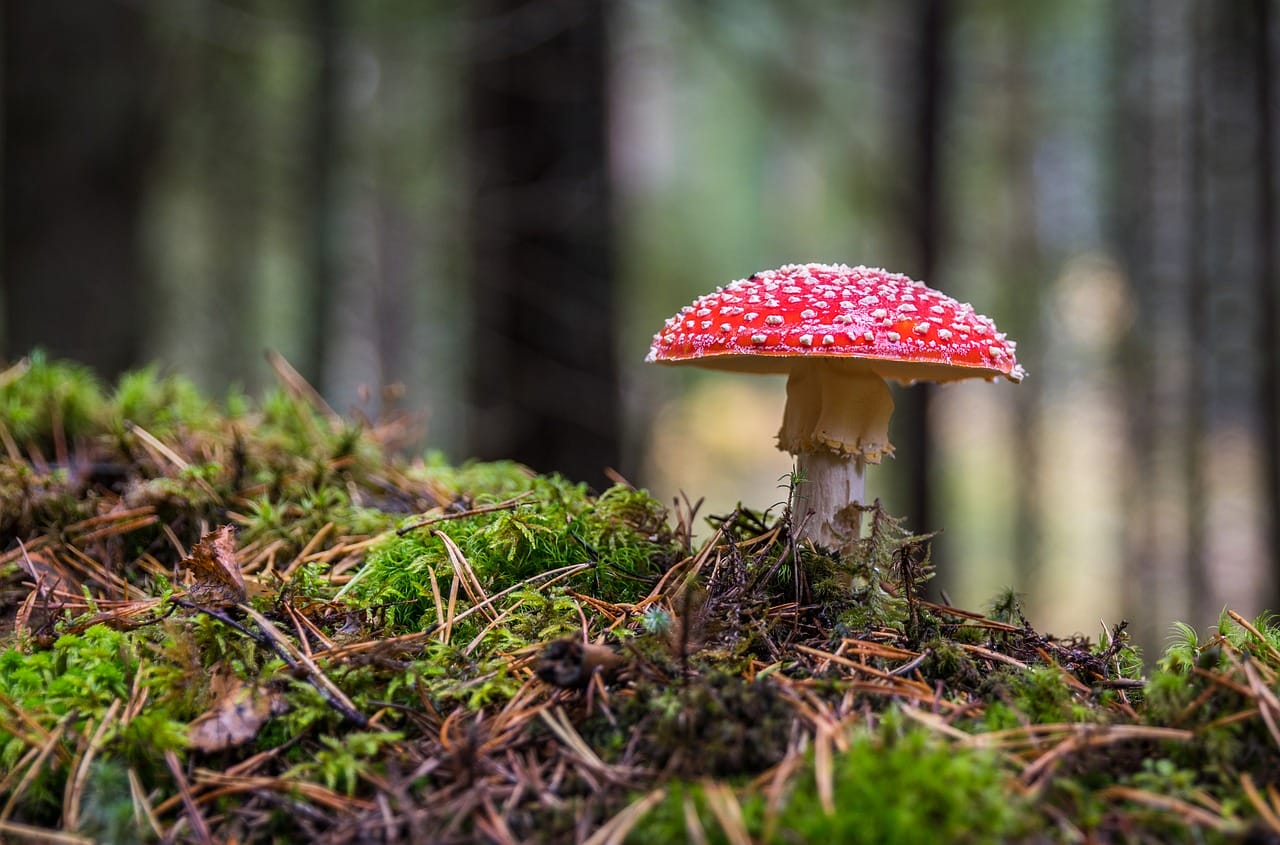For millennia, humans have observed and intentionally utilized the psychedelic characteristics of certain plants and fungi.
Among these, fungi, especially magic mushrooms, are acknowledged as the primary natural provider of psychedelic substances.
The psychedelic compound psilocybin, extracted from mushrooms, holds a considerable position in history, being used in spiritual ceremonies and therapeutic methods.
Many researchers are dedicating their time to explore the potential health benefits of shrooms online. Current studies have shed light on the effects of psilocybin mushrooms. These insights bring hope to many people, leading to a need for a conversation about their integration into Canada’s healthcare system.
Main Takeaways:
- Magic mushrooms, with their psychoactive ingredient psilocybin, have several benefits for addressing mental health problems in Canada.
- Psilocybin is safer and has a lower risk of addiction and toxicity compared to opioids.
- Psilocybin shows long-lasting effectiveness in treating depression, with effects that can persist for up to a year.

Insight into Psilocybin
Psilocybin, an indole-alkylamine (tryptamine) extracted from magic mushrooms, is structurally similar to lysergic acid diethylamide (LSD). Its effects encompass hallucinogenic and euphoric sensations, likely due to its interaction with serotonin (5-HT) receptors in the central nervous system.
Given its interaction with serotonin receptors, high-quality magic mushrooms show a unique potential to help manage mental health conditions.
The Opioid and Mental Health Crisis in Canada
Common Mental Health Disorders in Canada & Treatment Resistance
| 2012 | 2022 | |
| Major Depressive Episodes | 4.7% | 7.6% |
| Generalized anxiety disorder | 2.6% | 5.2% |
| Social phobia | 3.0% | 7.1% |
| Alcohol use disorder | 3.2% | 2.2% |
More than a third (36.6%) of people suffering from mood, anxiety, or substance use disorders reported that their healthcare and mental health needs were not met or inadequately addressed.
A scholarly article from the Canadian Journal of Psychiatry shed light on the treatment-seeking behaviour of individuals diagnosed with depression. The study examined 1282 patient records from 135 physicians. Two hundred sixty-three patients were identified as having treatment-resistant depression (TRD), translating to a prevalence rate of 21.7% throughout Canada.
Opioid Crisis
Approximately 8 million Canadians, or one out of every five, experience chronic pain. Unmanaged pain can have a negative impact on various aspects of a person’s life.
Healthcare practitioners often recommend the use of opioid medications for managing pain. While opioids can provide benefits such as pain relief and improved functionality, they also carry potential risks.
Between January 2016 and March 2022, at least 30,843 deaths related to opioid toxicity were recorded in Canada. The peak of these distressing events occurred in early 2021, with a staggering 5,368 cases reported. It’s significant to note that the vast majority, over 88%, of these incidents were in the provinces of British Columbia, Ontario, and Alberta.
For Major Depressive Episodes
A study featured in the Journal of Psychopharmacology enlisted 27 individuals with a long history of depression. The majority of these individuals had been living with depressive symptoms for approximately two years before joining the study. 88% of these individuals had received prior treatment with conventional antidepressants, and 58% reported ongoing use of such medications during their depressive episodes.
The study reported significant reductions in depression following psilocybin treatment for both groups. Additionally, the severity of depression remained consistently low at the one, three, six, and 12-month follow-up assessments post-treatment.
For General Anxiety and Social Phobia
A case study detailed in the Croatian Medical Journal in October 2021 explored HTML:
The story centers around a
A solitary 16-year-old boy, grappling with severe anxiety and an inability to socialize, sought help from a mental health clinic. His academic performance was deteriorating, exacerbated by a learning disability and a lack of motivation towards schoolwork. He found group therapy to be overwhelming and not beneficial.
After undergoing three psilocybin sessions over a period of 18 months, significant improvements were noted. His anxiety levels decreased, his communication skills with peers and teachers improved, and he became more open in expressing his emotions. He actively participated in group therapy and his interpersonal relationships improved.
Psilocybin in Treating Alcohol Use Disorder
A recent clinical trial, detailed in a study published in JAMA Psychiatry on August 24, unveiled the potential of combining psilocybin and psychotherapy for the treatment of alcohol use disorder. The study monitored the progress of 93 patients diagnosed with the condition over a period of 32 weeks.
Of the 48 individuals who participated in psilocybin-assisted therapy, there was a remarkable 83% decrease in alcohol consumption within eight months of their first dose. This was in comparison to a 51% reduction in the placebo group. Almost half of the participants who were given psilocybin ceased drinking entirely.
Addressing the Opioid Crisis
Elena Argento, a postdoctoral fellow at the University of British Columbia and BC Centre on Substance Use, is conducting research on the therapeutic use of psychedelics.
According to Argento, psilocybin can reduce addiction risks by influencing both neurobiology and psychology. She highlights the transformative experiences psychedelics can trigger, characterized by a profound sense of awe and self-transcendence. These experiences often lead individuals to discover new meanings and directions in life, potentially leading to behavioral changes, especially in relation to addiction.
In a recent longitudinal study conducted by Argento and the BC Centre on Substance Use, the study demonstrated a significant decrease in the likelihood of continued daily illicit opioid use among those who had recently used psychedelics or had done so in the past six months.
Argento’s 2018 study also indicated that psychedelic use could serve as a protective factor against the link between prescription opioid use and suicide risk.
An earlier study found links between psilocybin use and a reduced risk of opioid use disorder. This research suggested a 40% decreased risk of opioid misuse and a 27% lower risk of opioid dependence over the
Over the past year, there has been an increase in psychedelic use.
Health Canada and Other Regulatory Authorities Should Consider Psilocybin as Part of Canada’s Therapeutic Approach
Although Psilocybin is recognized for its potential beneficial effects on mental health, it remains challenging to obtain in Canada. Health Canada allows healthcare providers to prescribe this treatment through the Special Access Program, but the stringent criteria of the program create significant barriers for many professionals and their patients.
The use of psilocybin-containing mushrooms for therapeutic purposes could revolutionize mental health care in Canada, offering transformative potential benefits. Instead of relying on conventional yet often less efficient methods such as pharmaceuticals or opioid replacement therapy, psilocybin therapy presents an alternative with a potential for lasting and profound effects.
Studies indicate that psilocybin therapy could provide long-term benefits, potentially saving patients substantial expenses on ineffective treatments. Moreover, research suggests that psilocybin is generally safe, with low toxicity, minimal risk of misuse, and rare instances of overdose.
Where is Online Purchase of Psilocybin Possible?
If Canadians struggle to access psilocybin therapy, they can opt to buy magic mushrooms online to alleviate their current conditions. A range of magic mushroom products is available online, from high-dose shrooms to microdose magic mushrooms.
High-dose shrooms consist of psychedelic mushrooms offered in various formats like dried magic mushrooms, edibles, or beverages, which are consumed for their hallucinogenic and therapeutic effects.
Microdosing magic mushrooms involves products that contain small amounts of magic mushrooms. These products are available in capsules, shroom edibles, or shroom tea. Buying shrooms online offers an alternative way to experience the benefits of these mushrooms subtly. Magic Mushroom Toronto Canada exclusively provides premium magic mushrooms online, ensuring the best quality.
Is Psilocybin a Viable Option for Canadian Healthcare?
Psilocybin is often misunderstood due to its recreational use. It’s important to note that psilocybin has a safer profile compared to opioids and other commonly prescribed drugs in healthcare environments.
Increasing evidence highlights its potential benefits, similar to those of marijuana, in treating a variety of mental health conditions. dimensions of reality.
From a holistic health standpoint, magic mushrooms are leveraged to aid mental health therapies and foster personal development.
What potential risks and side effects could magic mushrooms cause?
Magic mushrooms can trigger a range of outcomes, both beneficial and adverse. These may encompass hallucinations, altered consciousness, and psychological shifts. Negatively, they can lead to nausea, dizziness, and in isolated instances, psychological distress. It’s crucial to handle magic mushrooms with care and consciousness, recognizing the inherent risks. It’s always prudent to consult a healthcare expert before initiating any new regimen involving magic mushrooms.
Is it secure to purchase magic mushrooms online?
Purchasing magic mushrooms online can be secure, provided you select a trustworthy source. It’s vital to execute extensive research on the product, brand, and the online dispensary before committing to a purchase. Customer feedback and ratings are valuable indicators of product quality and service reliability. Always opt for dispensaries that prioritize customer safety and satisfaction and provide secure payment methods.
Is it possible to cultivate my own magic mushrooms?
Indeed, growing magic mushrooms at home is viable and can be a rewarding experience. Nonetheless, it demands specific conditions and a comprehensive understanding of the growth process. You can discover numerous kits and guides online to support your cultivation endeavor. However, bear in mind that the legality of cultivating magic mushrooms varies depending on the location, so ensure you comply with your local laws and regulations.
experiences. In the wellness domain, some people prefer a more moderate approach, consuming small amounts of mushrooms to harness their benefits without inciting hallucinations.Articles That Might Interest You:





